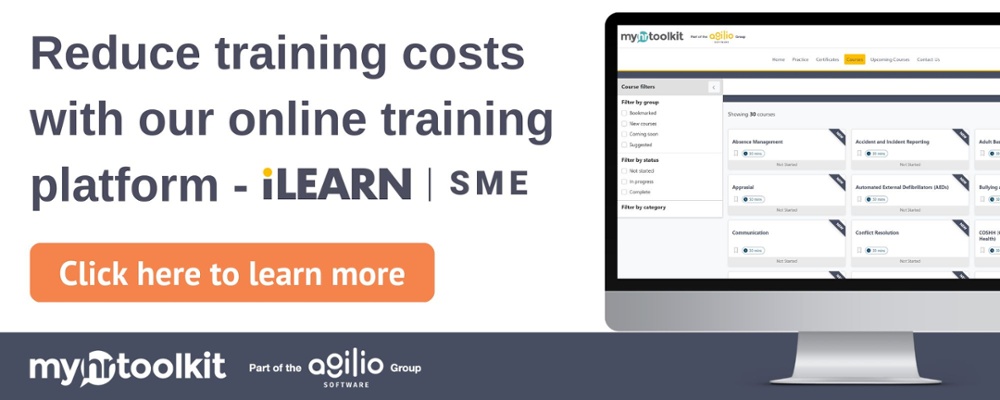Developing leadership skills in your employees can help them become more self-reliant and productive, more invested in the success of the business, and less likely to look elsewhere for career opportunities. But how is it best to go about helping employees develop leadership skills?
5 strategies for developing employee leadership skills
Developing employees into leaders does not have a one-size-fits-all approach, but there are strategies that business owners and managers can use to encourage employees to have a thoughtful, evidence-based, independent approach to gaining the skills required to be an effective leader.
Here are five key strategies for developing leadership skills in employees:
1. Identify which leadership skills are important
It’s important to identify which leadership skills employees need to thrive as people/project leaders before setting about instilling these skills in your workforce.
In their article on the important leadership skills for workplace success, The Balance list a range of core leadership skills, including skills within communication, motivation, delegation, positivity, and trustworthiness.
This is a great place to start – but also think about what good leadership looks like within your business and your industry. What skills should employees develop to be good leaders within your unique environment?
2. Encourage responsibility and independent thinking
This is the opposite of micro-managing, where an employee’s manager closely monitors their work with a fine-tooth comb. This can be frustrating and demotivating for the employee; plus, if they are constantly falling back on a manager or colleague when they’re not sure how to do something, they’re less likely to flourish in their role.
By providing more responsibility and encouraging employees to think independently, they will become more confident and adept at finding the answers they need. This way of thinking is crucial to developing as a leader, instead of habitually asking for help instead of trusting in their own skills (though of course this is important for learning at first!)
3. Have clear opportunities for growth
Giving employees more responsibility will help develop them as leaders – but only if those opportunities for growth within the business are evident. Having a clear approach to pay and promotional opportunities will help employees visualise how they can grow within the business, making them less likely to look for bigger opportunities elsewhere.
Beyond a clear promotional track, training is another area where you can offer career development for employees. Not sure what training to offer that will enhance your business as well as individual employees? Check out our business training needs analysis guide.
4. Provide leadership training
You may want to specifically provide leadership training opportunities to help employees grow as people and project leaders. This could be training from an external provider or from an experienced leader within your organisation, who will understand your company’s goals and values.
Offering leadership training also has far-reaching benefits for the organisation; according to an article from HRD Connect, leadership training can help businesses retain talent and inspire performance for increased productivity.
Related article: The benefits of training employees
5. Create mentorship programmes
People are rarely born leaders – even when they have a knack for it, everyone needs to learn how to lead effectively by example and practice. In a business context, the mentorship is an important way to facilitate this learning. Asking a senior employee to mentor a more junior member of staff in leadership skills can be a hugely beneficial, relationship-building, and cost-effective strategy.
Mentorships can work well in reverse, too; in development coach Chris Whitehead’s article on internal mentoring for our blog, he comments that for the mentor: “some of their ideas have been challenged, their listening skills have improved, they are more considered and precise when they talk.” So, it’s often a worthy learning opportunity for both parties when it comes to developing key leadership skills.
Recording and monitoring employee leadership training
Once your leadership training efforts are in place, it's beneficial to record any organisational or personal training towards gaining these skills to get an overview of their impact. A training management system is a great tool for recording and monitoring your organisational efforts towards leadership training for employees. See our training management system feature page to learn more.
Monitor training for managers and other employees within your organisation with a cloud-based training management system.
Read more from the myhrtoolkit blog
5 key leadership skills for the future – and how you can develop them

Written by Camille Brouard
Camille is a Senior Marketing Executive for myhrtoolkit who writes on topics including HR technology, workplace culture, leave management, diversity, and mental health at work.


 Holiday Planner
Holiday Planner Absence Management
Absence Management Performance Management
Performance Management Staff Management
Staff Management Document Management
Document Management Reporting
Reporting Health and Safety Management
Health and Safety Management Task Management
Task Management Security Centre
Security Centre Self Service
Self Service Mobile
Mobile




